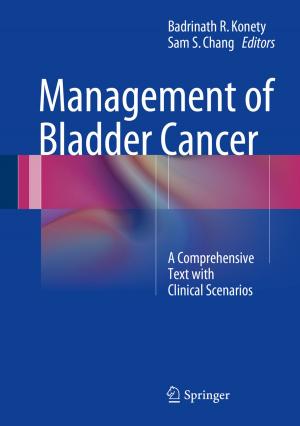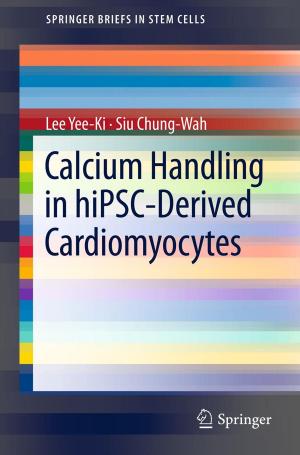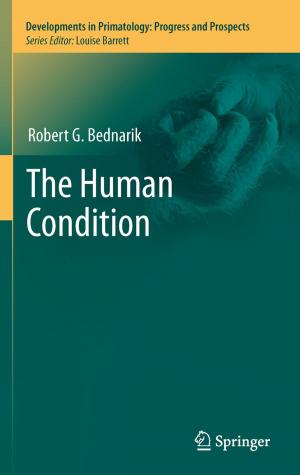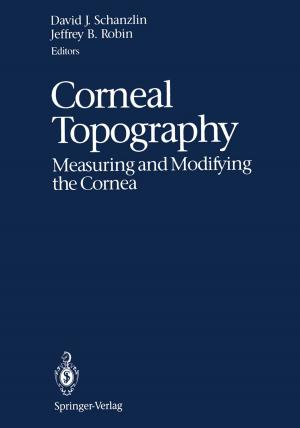Ultrasound Imaging
Advances and Applications
Nonfiction, Health & Well Being, Medical, Specialties, Ultrasonography, Reference, Research| Author: | ISBN: | 9781461411802 | |
| Publisher: | Springer New York | Publication: | December 15, 2011 |
| Imprint: | Springer | Language: | English |
| Author: | |
| ISBN: | 9781461411802 |
| Publisher: | Springer New York |
| Publication: | December 15, 2011 |
| Imprint: | Springer |
| Language: | English |
Diagnostic and Therapeutic Ultrasound has recently taken an explosive growth for better safer, economic, mobile and high quality healthcare. This technology is very appealing for medical applications because it is non-ionizing, non-invasive and it is available in most of the medical and clinical facilities. Its low cost, when compared with other medical image modalities, makes it one of the preferred tools for medical monitoring, follow-up and diagnosis. Besides the traditional fields of Cardiology and Obstetrics, where it is extensively used for long time, it has became also very useful in the diagnosis of diseases of the prostate, liver and coronaries and carotids atherosclerosis.
However, Ultrasound images present poor quality, very low signal to noise ratio and a lot of artifacts. The extraction of useful information from Ultrasound data for diagnosis is a challenge task that makes this medical image modality a very active field of research. The difficulties are being overcome and novel and advanced methods are being proposed for detection, characterization and segmentation of abnormalities in several organs. In fact, Ultrasound application range is vast, covering almost all organs of the human body, including the brain where Tran-cranial Doppler Ultrasound is very important to assess the brain vasculature.
This book presents some of the recent advances in Ultrasound imaging technology covering several organs and techniques in a Biomedical Engineering (BME) perspective. The focus of the book is in the algorithms, methodologies and systems developed by multidisciplinary research teams of engineers and physicians for Computer-Aided Diagnosis (CAD) purposes.
Cardiovascular and Cancer, the most common life-threatening diseases in western countries, are two of the most important topics focused in the book. However, other advanced issues are also presented such as Intravascular Ultrasound, 3D US and Ultrasound in Computer-Aided Surgery (CAS). Some chapters are direct contributions from medical research groups where Ultrasound has also received great attention in the last decade. By this, new techniques based on Ultrasound were introduced in the clinical practice for diagnosis and therapeutics, mainly in hospital facilities.
Diagnostic and Therapeutic Ultrasound has recently taken an explosive growth for better safer, economic, mobile and high quality healthcare. This technology is very appealing for medical applications because it is non-ionizing, non-invasive and it is available in most of the medical and clinical facilities. Its low cost, when compared with other medical image modalities, makes it one of the preferred tools for medical monitoring, follow-up and diagnosis. Besides the traditional fields of Cardiology and Obstetrics, where it is extensively used for long time, it has became also very useful in the diagnosis of diseases of the prostate, liver and coronaries and carotids atherosclerosis.
However, Ultrasound images present poor quality, very low signal to noise ratio and a lot of artifacts. The extraction of useful information from Ultrasound data for diagnosis is a challenge task that makes this medical image modality a very active field of research. The difficulties are being overcome and novel and advanced methods are being proposed for detection, characterization and segmentation of abnormalities in several organs. In fact, Ultrasound application range is vast, covering almost all organs of the human body, including the brain where Tran-cranial Doppler Ultrasound is very important to assess the brain vasculature.
This book presents some of the recent advances in Ultrasound imaging technology covering several organs and techniques in a Biomedical Engineering (BME) perspective. The focus of the book is in the algorithms, methodologies and systems developed by multidisciplinary research teams of engineers and physicians for Computer-Aided Diagnosis (CAD) purposes.
Cardiovascular and Cancer, the most common life-threatening diseases in western countries, are two of the most important topics focused in the book. However, other advanced issues are also presented such as Intravascular Ultrasound, 3D US and Ultrasound in Computer-Aided Surgery (CAS). Some chapters are direct contributions from medical research groups where Ultrasound has also received great attention in the last decade. By this, new techniques based on Ultrasound were introduced in the clinical practice for diagnosis and therapeutics, mainly in hospital facilities.















